Susan Rich's Blog, page 66
July 7, 2011
Do-It-Yourself Writing Retreat - Thanks Midge!
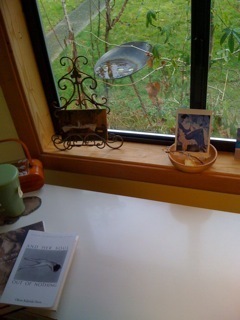
My friend Midge Raymond is an incredible person. As a publisher, blogger and writer extraordinaire, she continually inspires me. Here's an interesting way to create a writing retreat without a great deal of planning. All you need is a friend and you're off...
Later in the summer I will be writing about going out-of-country for a writing retreat. I think both offer some wonderful ways out of the everyday. Would love to hear what your best writing experiences have been...
Create your own virtual writing retreatby Midge RaymondSadly, lately my writing has taken a backseat to everything else. So last week, I decided that I would use the long holiday weekend for an unofficial writing retreat. "Unofficial" essentially means that I didn't need to apply, travel, or formally do anything other than pledge to write — perfect for such a last-minute decision.To read the rest of Midge's adventures...click here
Published on July 07, 2011 11:03
July 6, 2011
What Will Those Crazy (North American) Poets Think of Next?

Thanks to my sister B. Ruby Rich for this article from The Guardian. I would love to hear from someone who calls. I think given Christle's subject matter this makes some sense. You have to love the use of old technology -- voice to voice in real time.
Poet creates 'buzz' around work by reading over phone to potential buyers
It's one way to connect with your fans: poet Heather Christle is launching her new
collection by offering readers the opportunity to give her a call and hear her read a poem.
The American author, whose poems have appeared in the New Yorker, has just published her second collection, The Trees The Trees, and rather than relying on the usual publicity tour, has decided instead to list her phone number on her website. At set times every day until 14 July she will read a poem to anyone who calls her.
"The book itself is full of references to phones and phone calls, and the speaker often seems to mistake the technology of the page for that of the telephone, imagining that the reader is right there in the moment," said Christle. "My father is a merchant mariner, and when my sister and I were small we would record messages to him on cassette tapes. I'd often ask questions and then pause for his response. There's something so lovely and sad about the hope that another actual person is on the other end of any technology. So I thought it would be interesting to bring that dynamic forward, to read these poems (which frequently address a 'you') directly to another person, across the intimate distance a telephone creates."So far she has received around 60 calls, from a multitude of different readers, from a couple from Toronto looking for a love poem to a class in western Massachusetts. "I've been amazed at how variously people respond.To continue reading, click right here.
Published on July 06, 2011 09:35
July 5, 2011
Rare and Wonderful Books for Sale - White Pine Publisher Shares It All
Head on over to the White Pine Press Giant Book Sale hosted by editor and poet Dennis Maloney. Everyone from Carolyn Forche to Wallace Stegner is here. Signed books, broadsides, and complete author collections. Take a look right here!
And in other White Pine Press news: Congratulations to Alexander Long, whose book Still Life won the White Pine Press Poetry Prize selected by Aliki Barnstone. Here is one of Long's poems, "Regrets Only, Not Much" originally published in Black Bird Journal.
Regrets Only, Not Much
1. "O Holy Night"I would give anything to understand why
You threw the leftover wedding invitations we made by handInto the dumpster, and why, before you did it,
You kissed them. And how we argued for hoursOver the RSVP, what it really meant and the cost of it all.It was beginning to freeze outside then, too. Not much,
But enough to remember it by.And I would give anything to know why
The more I try to remember you away from that day,The more I feel myself sliding toward you,
The more I hear the cracking of things.Really, what cracks is the city, wind squeezing
Buildings, taxis and buses and rigsPressing down streets, shoppers bundled and huddled
Arm in arm, mouthing cold smokeOf Christmas carols as they float from shop to shop:Let nothing you dismay . . . oh what fun . . . fall on your knees . . . .And your voice . . .
or my memory of it.It's all the same, and I don't know where I go,
Really, when I slip into it.Wherever it is, it's not far, but it is
unreachable.If I could hear your voice in a new way
As I step out into this newer coldAnd watch my breath swim through bitter air
With carols streaming through snow beginning,Would that make it better somehow?Would I begin to forget, for example, how I
Laid you down to sleep, eased youInto it for years with a cup of warm milk and a little tuneYour grandmother hummed?There's more to pain than memory.Besides, ours was another life, the one not set in type,
And if it were the only life, nothingWould have happened between us.~I'm barely thirty, and to talk about this is hard,Not because of the pain,
But because I can't remember it enough, so tangledAnd torn and fleeting, I feel the old love stirring:Pleasure is hardly crueler than the memory of it.So, Reader, stand here with me on this cold corner,
Just this once, toss your clumsy bags of gifts to the street,Wrap your scarves around your chin, and look at this woman.
She's all we need to share.She keeps waving cars down, yelling.
Not one stops. But they slow, seem to listen.And look at the man with the long beard and camouflage coat,
The tattoos clawing around his neck, and his Doberman Wrapped in a black smock and silver spiked muzzle,
How they move a little to the left, and then a little more.Is it fear?
She must be freezing as she turnsInto angry water, as her curses become the sharp, invisible crystal
That, if caught in something more than an image,Would resemble oversized snowflakes,
The kind children make with paper and scissors.It's gorgeous how that happens, don't you think?The Doberman's breath as she curls around her master's feet,
The crystal streaming from her snout,The man's calming shushes into her clipped ears,The laughter of those on the street at the woman,
or not,The woman's cursing at what she sees,
or doesn't . . .Their parade of white breath rising with the carolers' . . .
Cold, white, gone. Beautiful communion . . .Jesus Christ with ice . . . . Hello, goodbye, and the stars
Are brightly shining . . .I would give anything to understand why this happens, the marriage
Of breath and ice, strange couplings and shatteringsOrdained, then abandoned, by wind.If there were a way I could hold it together,I'd be writing something different,
A different kind of love poem, maybe, the kindSketched in crystal, oneI could hold you in, remember you enough by. 2. KristallnachtMuch to their dismay, certain S. S. guards found the female Doberman
Superior. Their sense of smell was more acute,More receptive to what we call terror,Their ferocity more easily triggered by waving
A wolf's tongue dripping with their pups' bloodIn front of their muzzled, spiked snouts.Then, they'd be let loose to tear you
Into the crystallized breath you are becomingLess and less of.They would tear, and not let go.
And as you ran and jumped and cursed
Through the alleys of Dinslaken, Munich, Augsburg—And later Warsaw, Paris, Prague—Your screams, if your screams rang that far,
Would become as mute as the effigyOf, say, Wagner glaring toward Russia from the Charles Bridge,
The Vlatava rippling with German U-boats,Beginning to freeze along its edges, where, more than once,
A man and his grandson unsuccessfully fished.As you told me this, you began to laugh
The kind of laugh that refuses to tell the entire story.In your concealment, I began to understand.There are things we choose not to say, and there are things
We cannot say simply, and these words,You assured me, were not yours. They were your grandmother's.And still are.But the more I pay attention to what I remember, the more I slide
Into your laughter, your own telling:"How did we end up at Kristallnacht, anyway?
We were supposed to be breaking up. . . ."I still wish I knew what to say. You were hushing
Yourself then because of the listeners, like I'm doing now,~And as I think softly, I'm really speaking out loud.
About your voice, that is, and the sleet, and the windowpanes fillingWith ice. I can see you now behind that fogged windowMarinating chicken in a plastic container. Why?
No one else
Is home. It's been this way now for years.You stand at the counter, turning over and over
The meat, the sleet pelts, and it's not much, you think.The lawyers haven't called, haven't written, won't listen,And it's not much. You mutter it softly, not much, not
Much, splintered iambs under your breath until you can't hear themAnymore, even though you're speaking plainly above
A whisper by now, clearly above the stereo and Scotch on the rocksAnd Camel Lights, which float into their own rhythm, burning—Not much, not much, not muchEchoing down halls we painted blue.
Ring, and after-ring, ice on glass, and echo again.No one's coming home, not much not much not much,
And even here, Reader, the sleet begins to patter trochaically.I know it's too much. I know. I know
it's been falling so steadilyThat it takes on a life of its own in a world that unravelsRight next to ours, this world we know
Where meaning has been banished, where the only lawIs the freezing water of regret kissing sound.Which means, I'm thinking, there is no law.
Listen—

And in other White Pine Press news: Congratulations to Alexander Long, whose book Still Life won the White Pine Press Poetry Prize selected by Aliki Barnstone. Here is one of Long's poems, "Regrets Only, Not Much" originally published in Black Bird Journal.
Regrets Only, Not Much
1. "O Holy Night"I would give anything to understand why
You threw the leftover wedding invitations we made by handInto the dumpster, and why, before you did it,
You kissed them. And how we argued for hoursOver the RSVP, what it really meant and the cost of it all.It was beginning to freeze outside then, too. Not much,
But enough to remember it by.And I would give anything to know why
The more I try to remember you away from that day,The more I feel myself sliding toward you,
The more I hear the cracking of things.Really, what cracks is the city, wind squeezing
Buildings, taxis and buses and rigsPressing down streets, shoppers bundled and huddled
Arm in arm, mouthing cold smokeOf Christmas carols as they float from shop to shop:Let nothing you dismay . . . oh what fun . . . fall on your knees . . . .And your voice . . .
or my memory of it.It's all the same, and I don't know where I go,
Really, when I slip into it.Wherever it is, it's not far, but it is
unreachable.If I could hear your voice in a new way
As I step out into this newer coldAnd watch my breath swim through bitter air
With carols streaming through snow beginning,Would that make it better somehow?Would I begin to forget, for example, how I
Laid you down to sleep, eased youInto it for years with a cup of warm milk and a little tuneYour grandmother hummed?There's more to pain than memory.Besides, ours was another life, the one not set in type,
And if it were the only life, nothingWould have happened between us.~I'm barely thirty, and to talk about this is hard,Not because of the pain,
But because I can't remember it enough, so tangledAnd torn and fleeting, I feel the old love stirring:Pleasure is hardly crueler than the memory of it.So, Reader, stand here with me on this cold corner,
Just this once, toss your clumsy bags of gifts to the street,Wrap your scarves around your chin, and look at this woman.
She's all we need to share.She keeps waving cars down, yelling.
Not one stops. But they slow, seem to listen.And look at the man with the long beard and camouflage coat,
The tattoos clawing around his neck, and his Doberman Wrapped in a black smock and silver spiked muzzle,
How they move a little to the left, and then a little more.Is it fear?
She must be freezing as she turnsInto angry water, as her curses become the sharp, invisible crystal
That, if caught in something more than an image,Would resemble oversized snowflakes,
The kind children make with paper and scissors.It's gorgeous how that happens, don't you think?The Doberman's breath as she curls around her master's feet,
The crystal streaming from her snout,The man's calming shushes into her clipped ears,The laughter of those on the street at the woman,
or not,The woman's cursing at what she sees,
or doesn't . . .Their parade of white breath rising with the carolers' . . .
Cold, white, gone. Beautiful communion . . .Jesus Christ with ice . . . . Hello, goodbye, and the stars
Are brightly shining . . .I would give anything to understand why this happens, the marriage
Of breath and ice, strange couplings and shatteringsOrdained, then abandoned, by wind.If there were a way I could hold it together,I'd be writing something different,
A different kind of love poem, maybe, the kindSketched in crystal, oneI could hold you in, remember you enough by. 2. KristallnachtMuch to their dismay, certain S. S. guards found the female Doberman
Superior. Their sense of smell was more acute,More receptive to what we call terror,Their ferocity more easily triggered by waving
A wolf's tongue dripping with their pups' bloodIn front of their muzzled, spiked snouts.Then, they'd be let loose to tear you
Into the crystallized breath you are becomingLess and less of.They would tear, and not let go.
And as you ran and jumped and cursed
Through the alleys of Dinslaken, Munich, Augsburg—And later Warsaw, Paris, Prague—Your screams, if your screams rang that far,
Would become as mute as the effigyOf, say, Wagner glaring toward Russia from the Charles Bridge,
The Vlatava rippling with German U-boats,Beginning to freeze along its edges, where, more than once,
A man and his grandson unsuccessfully fished.As you told me this, you began to laugh
The kind of laugh that refuses to tell the entire story.In your concealment, I began to understand.There are things we choose not to say, and there are things
We cannot say simply, and these words,You assured me, were not yours. They were your grandmother's.And still are.But the more I pay attention to what I remember, the more I slide
Into your laughter, your own telling:"How did we end up at Kristallnacht, anyway?
We were supposed to be breaking up. . . ."I still wish I knew what to say. You were hushing
Yourself then because of the listeners, like I'm doing now,~And as I think softly, I'm really speaking out loud.
About your voice, that is, and the sleet, and the windowpanes fillingWith ice. I can see you now behind that fogged windowMarinating chicken in a plastic container. Why?
No one else
Is home. It's been this way now for years.You stand at the counter, turning over and over
The meat, the sleet pelts, and it's not much, you think.The lawyers haven't called, haven't written, won't listen,And it's not much. You mutter it softly, not much, not
Much, splintered iambs under your breath until you can't hear themAnymore, even though you're speaking plainly above
A whisper by now, clearly above the stereo and Scotch on the rocksAnd Camel Lights, which float into their own rhythm, burning—Not much, not much, not muchEchoing down halls we painted blue.
Ring, and after-ring, ice on glass, and echo again.No one's coming home, not much not much not much,
And even here, Reader, the sleet begins to patter trochaically.I know it's too much. I know. I know
it's been falling so steadilyThat it takes on a life of its own in a world that unravelsRight next to ours, this world we know
Where meaning has been banished, where the only lawIs the freezing water of regret kissing sound.Which means, I'm thinking, there is no law.
Listen—

Published on July 05, 2011 11:21
July 4, 2011
Happy 4th of July to You - And your very flesh shall be a great poem
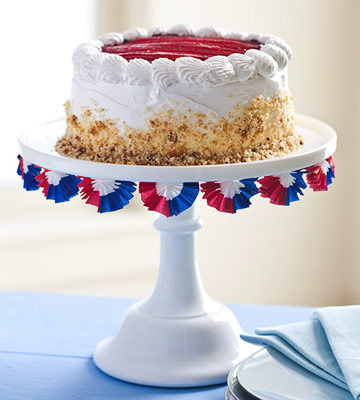
This is What You Shall Do - by Walt Whitman by way of The Writer's Almanac
"This is what you shall do; Love the earth and sun and the animals, despise riches, give alms to every one that asks, stand up for the stupid and crazy, devote your income and labor to others, hate tyrants, argue not concerning God, have patience and indulgence toward the people, take off your hat to nothing known or unknown or to any man or number of men, go freely with powerful uneducated persons and with the young and with the mothers of families, read these leaves in the open air every season of every year of your life, re-examine all you have been told at school or church or in any book, dismiss whatever insults your own soul, and your very flesh shall be a great poem and have the richest fluency not only in its words but in the silent lines of its lips and face and between the lashes of your eyes and in every motion and joint of your body."
Published on July 04, 2011 00:21
July 3, 2011
A Writing Exercise, Travel Poetry, and poet Jeanine Hall Gailey Interviews Me Today!
 Thank you to Jeannine Hall Gailey who has an interview with me up today on her blog. Jeannine also has a brand new book out - this weekend She Returns to the Floating World available at fine bookstores everywhere. Hope you're having a lazy and lovely holiday weekend.
Thank you to Jeannine Hall Gailey who has an interview with me up today on her blog. Jeannine also has a brand new book out - this weekend She Returns to the Floating World available at fine bookstores everywhere. Hope you're having a lazy and lovely holiday weekend.
Published on July 03, 2011 10:14
June 30, 2011
Biscuits with Applesauce and Of Gentle Wolves
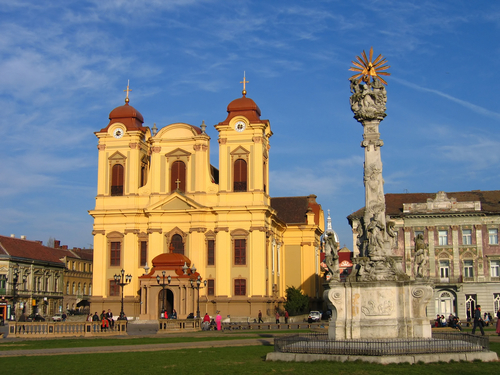 Romania is the second largest country in Eastern Europe
Romania is the second largest country in Eastern EuropeI admit to full ignorance when it comes to Romanian poetry. I sense that I am not alone in this poetic deficit --- at least among North American poets. However, I am looking forward to the anthology Of Gentle Wolves: An Anthology of Romanian Poetry edited by Martin Woodside, due out in July (that is one day away, by the way).
Still in its first year of operations, Calypso Editions is forging a new (old) model in publishing that is worthy of more attention. Here is the press's statement of purpose.
The editors are targeting bookstores such as Open Books, Elliott Bay Book Company, Pegasus Books, and The Seminary Bookstore across the country. I love everything about this model -- the editors are clearly a working cooperative and will publish some of their own projects as well as the work of others. Anna Swir and Leo Tolstoy collections also came out this year. The editors stress that they have not set out to publish only international literature --- merely poetry and fiction with a global focus.
This is a press to not only to rejoice in, but also to support. Why not be the first on the block with a copy of a Calypso Editions book on your shelf. Call me easily pleased, but I am hoping I'm the first one introducing you to these beautiful poems. Enjoy!
Biscuits with Applesauce
I stay with mara at the window. a beautiful winter's dayit snows as we eat biscuits with apple saucenot saying a word.each with a tiny spoon,each with the whole winter morning before us.sometimes we stop eating andpress our noses to the glass stay that way without saying a wordbreath warms my face slowlyand slowly—slowly mara's breathspreads warmth throughout the park.
By Dan ComanTranslated by Martin Woodside and Ioana Ieronim
Published on June 30, 2011 14:09
June 28, 2011
It's a Day for "One Art" - Honoring Miss Bishop
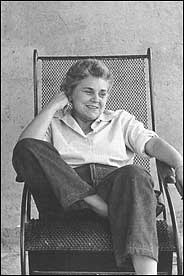
Elizabeth Bishop was the poet that brought me back to writing. I found her after I'd spent my twenties living in West Africa, England, and Scotland. After I had hitch-hiked between London and Rome, after I had traveled overland from Mali to Senegal by freight train, after I had lost at love. Without Bishop's poems and the story of her life, I don't think I could have believed in myself enough to write. In no small terms, Elizabeth Bishop saved me. On this grey, cool, Nova Scotia like day - I lift my writing pen to her.
Thanks to the miracle of the web, you can now hear her read her poems ("The Art of Losing and the Man-Moth") -- something she didn't much like to do. There's a wonderful letter where she writes of seeing Anne Sexton read in Boston (they both lived in the city at the same time) with a back-up band. She felt like an old foggy beside the young woman.
If Elizabeth Bishop were alive today, she would be 100 years old. Well, she would have turned 100 in February. In Nova Scotia, where Bishop lived the happiest years of her childhood, it's been an all year celebration. Here is the Elizabeth Bishop Centenary Blog (English and Spanish) that focuses on all things Bishop with daily updates. And for $10 a year ($25 for three years) you can become a member of the Elizabeth Bishop Society of Nova Scotia. I am signing up today! The website states that centenary celebrations are planned to continue for the foreseeable future. This seems the right time to plan a trip to Nova Scotia. Why not?
***H mmm I've just noticed that I posted this poem almost exactly a year ago. How strange that it comes back to me now. I will link to the original post here -- and because I'm a little embarrassed to repeat myself, I will add a second poem by Miss Bishop that I also love.
One Artby Elizabeth BishopThe art of losing isn't hard to master;
so many things seem filled with the intent
to be lost that their loss is no disaster.
Lose something every day. Accept the fluster
of lost door keys, the hour badly spent.
The art of losing isn't hard to master.
Then practice losing farther, losing faster:
places, and names, and where it was you meant
to travel. None of these will bring disaster.
I lost my mother's watch. And look! my last, or
next-to-last, of three loved houses went.
The art of losing isn't hard to master.
I lost two cities, lovely ones. And, vaster,
some realms I owned, two rivers, a continent.
I miss them, but it wasn't a disaster.
--Even losing you (the joking voice, a gesture
I love) I shan't have lied. It's evident
the art of losing's not too hard to master
though it may look like (Write it!) like disaster.
Here is her "Questions of Travel" which I can't get to look right here so instead, here is the one place on the web I can find it. This is also a top favorite of mine.
Published on June 28, 2011 09:38
June 27, 2011
More Lies - American Life in Poetry
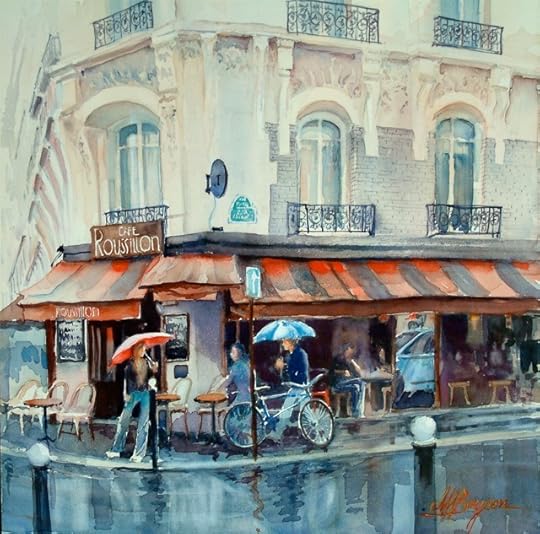
I found this poem this morning in Ted Kooser's American Life in Poetry column. I love the way it moves so effortlessly and illustrates, as Elizabeth Bishop wrote about, "the mind in motion." This is the kind of poem that makes me want to write my own version. In life, I'm a terrible liar -- I am biologically made to tell the truth (well, most of the time) so lying in a poem sounds like a great deal of fun. I think it's my next assignment to myself; although I confess I do pretty badly with homework of any sort. I hope you enjoy - perhaps you have some lies to tell, too?
I'd heard the name of this poet before: Karin Gottshall, but this poem makes we want to get to know her work. This poem is taken from her recent collection, Crocus.
More Lies
Sometimes I say I'm going to meet my sister at the café—even though I have no sister—just because it's sucha beautiful thing to say. I've always thought so, ever since
I read a novel in which two sisters were constantly meetingin cafés. Today, for example, I walked aloneon the wet sidewalk, wearing my rain boots, expecting
someone might ask where I was headed. I boughta steno pad and a watch battery, the store windowsfogged up. Rain in April is a kind of promise, and it costs
nothing. I carried a bag of books to the café and orderedtea. I like a place that's lit by lamps. I like a placewhere you can hear people talk about small things,
like the difference between azure and cerulean,and the price of tulips. It's going down. I watchedsomeone who could be my sister walk in, shaking the rain
from her hair. I thought, even now florists are fillingtheir coolers with tulips, five dollars a bundle. All overthe city there are sisters. Any one of them could be mine.
American Life in Poetry is made possible by The Poetry Foundation (www.poetryfoundation.org), publisher of Poetry magazine. It is also supported by the Department of English at the University of Nebraska-Lincoln. Poem copyright ©2010 by Karin Gottshall, whose most recent book of poetry is Crocus, Fordham University Press, 2007. Poem reprinted from the New Ohio Review, No. 8, Fall 2010, by permission of Karin Gottshall and the publisher.
Published on June 27, 2011 20:30
June 26, 2011
Kelli Russell Agodon Wins the Gold!
 Photo by Rosanne OlsonCongratulations to my dear friend Kelli Russell Agodon whose book Letters from the Emily Dickinson Room has just won the "Gold" (yes, the top prize) for Foreword Magazine's Poetry Book of the Year. Congratulations to Kelli! And if you have forgotten to get your copy, now is a good time to get Letters from the Emily Dickinson Room from your local bookstore!
Photo by Rosanne OlsonCongratulations to my dear friend Kelli Russell Agodon whose book Letters from the Emily Dickinson Room has just won the "Gold" (yes, the top prize) for Foreword Magazine's Poetry Book of the Year. Congratulations to Kelli! And if you have forgotten to get your copy, now is a good time to get Letters from the Emily Dickinson Room from your local bookstore!
Published on June 26, 2011 09:34
June 25, 2011
Congratulations, New York!
 From today's New York Times
From today's New York TimesLawmakers voted late Friday to legalize same-sex marriage, making New York the largest state where gay and lesbian couples will be able to wed and giving the national gay-rights movement new momentum from the state where it was born.
The marriage bill, whose fate was uncertain until moments before the vote, was approved 33 to 29 in a packed but hushed Senate chamber. Four members of the Republican majority joined all but one Democrat in the Senate in supporting the measure after an intense and emotional campaign aimed at the handful of lawmakers wrestling with a decision that divided their friends, their constituents and sometimes their own homes.. To continue reading ...
Multimedia
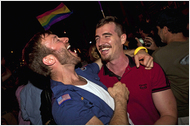 Celebration at the Stonewall Inn
Celebration at the Stonewall Inn
Published on June 25, 2011 09:17



